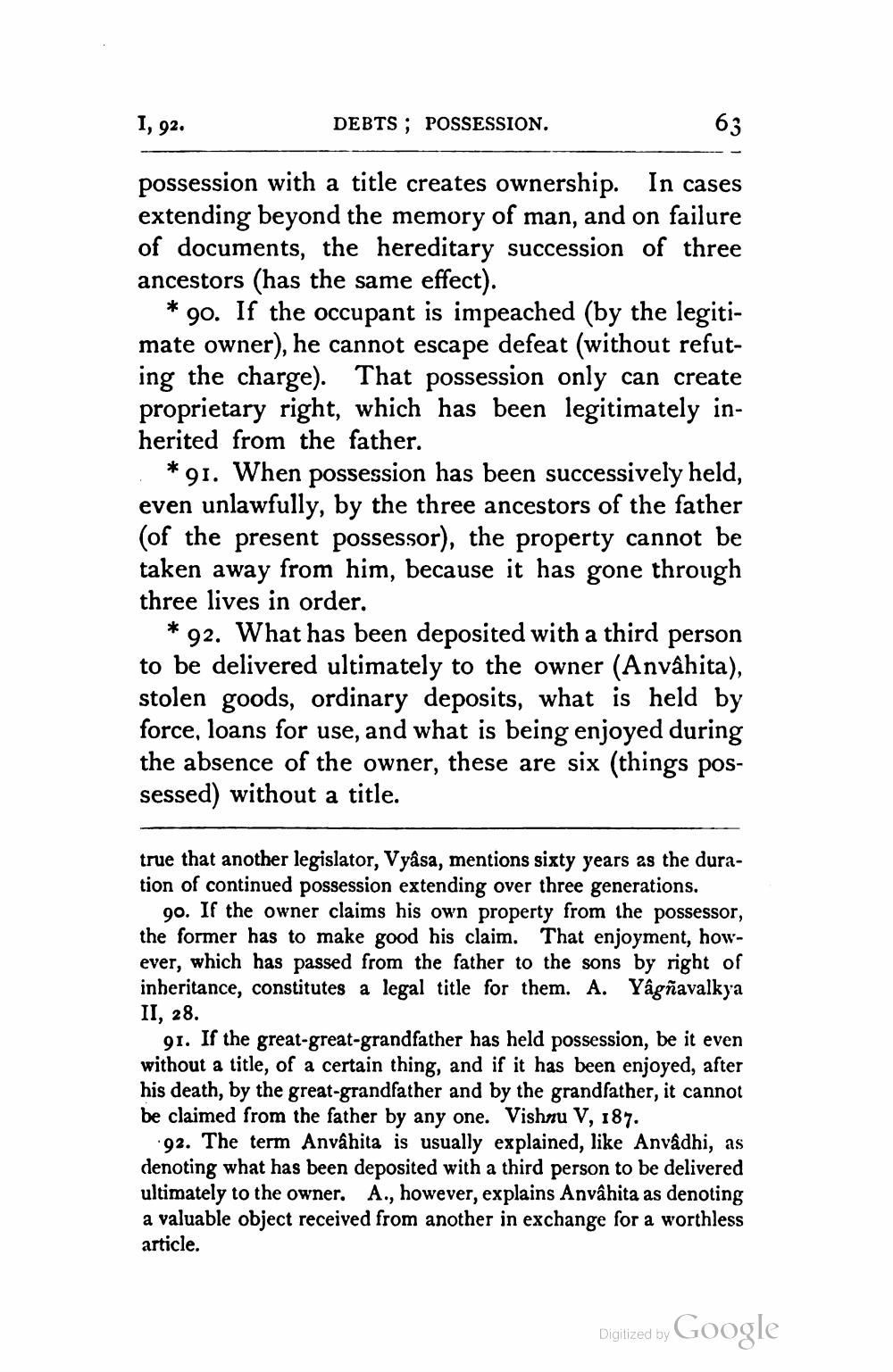________________
I, 92.
DEBTS ; POSSESSION.
63
possession with a title creates ownership. In cases extending beyond the memory of man, and on failure of documents, the hereditary succession of three ancestors (has the same effect).
* 90. If the occupant is impeached (by the legitimate owner), he cannot escape defeat (without refuting the charge). That possession only can create proprietary right, which has been legitimately inherited from the father.
*91. When possession has been successively held, even unlawfully, by the three ancestors of the father (of the present possessor), the property cannot be taken away from him, because it has gone through three lives in order.
* 92. What has been deposited with a third person to be delivered ultimately to the owner (Anvâhita), stolen goods, ordinary deposits, what is held by force, loans for use, and what is being enjoyed during the absence of the owner, these are six (things possessed) without a title.
true that another legislator, Vyâsa, mentions sixty years as the duration of continued possession extending over three generations.
go. If the owner claims his own property from the possessor, the former has to make good his claim. That enjoyment, however, which has passed from the father to the sons by right of inheritance, constitutes a legal title for them. A. Yâgñavalkya II, 28.
91. If the great-great-grandfather has held possession, be it even without a title, of a certain thing, and if it has been enjoyed, after his death, by the great-grandfather and by the grandfather, it cannot be claimed from the father by any one. Vishnu V, 187.
92. The term Anvâhita is usually explained, like Anvadhi, as denoting what has been deposited with a third person to be delivered ultimately to the owner. A., however, explains Anvâhita as denoting a valuable object received from another in exchange for a worthless article.
Digitized by Google




